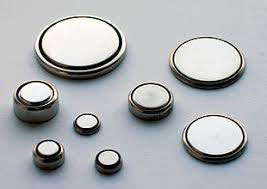Photos

First Aid Advice for Suspected Swallowed Button Battery
Give Honey.
- Give the child honey now if you have it.
- Dosage: 10 mL (2 teaspoons) every 10 minutes until you arrive at the ER.
- Reason: honey can protect from some of the damage.
- Exception: age less than 12 months.
- Caution: don't let this delay your leaving for the ER.
Source: Schmitt Pediatric Guidelines
Used with Permission from Schmitt Pediatric Guidelines LLC.